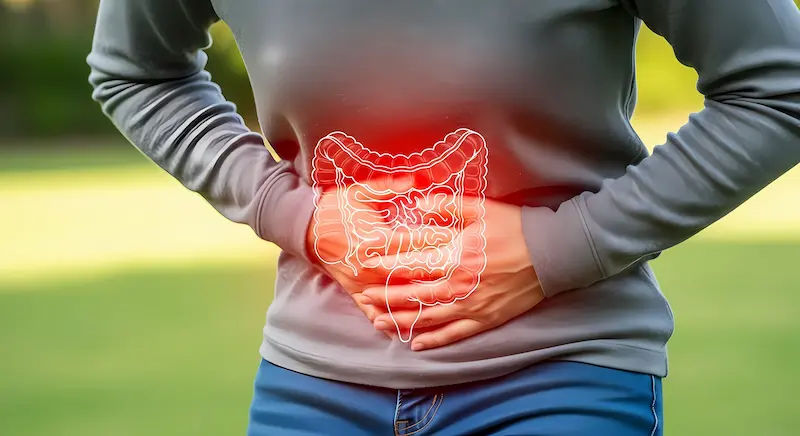Constipation and Heart Rate Connection Explained


Introduction
Constipation is a common digestive issue that affects people of all ages. While it’s usually not a serious condition, persistent constipation can sometimes lead to unexpected health concerns, including changes in heart rate. If you’ve ever wondered whether constipation can affect your heart, you’re not alone. In this article, we’ll explore the connection between constipation and heart rate, why it occurs, and ways to manage it.
Understanding Constipation
Constipation occurs when bowel movements become less frequent or are difficult to pass. Common symptoms to identify constipation include:
- Hard, dry stools
- Straining during bowel movements
- Feeling bloated or uncomfortable
- Having fewer than three bowel movements in a week
Common Causes of Constipation
The cause of constipation can vary from diet to mental health status. A few of them are listed here, which include:
- Low fibre diet
- No or less intake of water
- Lack of physical activity
- Use of certain medications (painkillers, antacids and antidepressants)
- Stress or anxiety
- Ignoring the urge to defecate
How does Constipation affect heart Rate?
You might be surprised to know that constipation can sometimes influence your heart rate. Some of the factors affecting are given here:
1. Straining and the Valsalva Maneuver
When you strain to pass stool, you may unconsciously hold your breath and bear down—a reflex called the Valsalva maneuver. This action temporarily increases pressure in the chest, which can cause:
- Slow down the heart rate (bradycardia)
- Causes a sudden drop in blood pressure
- Leads to dizziness or fainting in some cases
- While this is usually temporary, frequent straining can put extra stress on the heart, especially in people with existing heart conditions.
2. Dehydration and Electrolyte Imbalance
Chronic constipation is often linked to dehydration. When the body lacks enough fluids, it can lead to:
- Low potassium or magnesium levels (electrolyte imbalance)
- Irregular heartbeats (arrhythmias)
- Increased heart rate (tachycardia)
3. Stress and the Gut-Brain Connection
The gut and brain are closely connected through the vagus nerve, which also influences heart rate. Constipation can cause stress and discomfort, and lead to:
- Increased anxiety
- Higher heart rate due to stress hormones
4. Underlying Conditions
In rare cases, severe constipation may be a sign of an underlying condition (like hypothyroidism or Parkinson’s disease) that can also affect heart function.
Consult Top Cardiologist for Personalised Health Advice
When to Be Concerned?
Most of the time, constipation-related heart rate changes are temporary and harmless. However, consult a doctor if you experience:
- Persistent irregular heartbeat
- Chest pain or shortness of breath
- Severe dizziness or fainting
Blood in stool or unexplained weight loss
How to Manage Constipation and Support Heart Health?
Ways to manage constipation and support heart health are:
1. Improve Your Diet
- Eat more fibre-rich foods (whole grains, fruits, vegetables, beans).
- Stay hydrated. Drink at least 8 glasses of water daily.
- Limit processed foods, dairy, and red meat.
2. Stay Active
- Regular exercise (walking, yoga) helps digestion and circulation.
- Gentle abdominal massages can stimulate bowel movements.
3. Avoid Straining
- Listen to your body and don’t ignore the urge to go.
- Use a small stool to elevate your feet while sitting on the toilet (helps ease bowel movements).
4. Manage Stress
- Practice deep breathing or meditation.
- Get enough sleep to support gut health.
5. Consider Probiotics
Probiotic-rich foods (yoghurt, kefir, fermented foods) support gut health.
When to Seek Medical Help?
If constipation persists despite lifestyle changes or if you notice unusual heart symptoms, consult a doctor. You may need medications and a diagnosis:
- Laxatives (only under medical supervision)
- Tests to rule out underlying conditions
Final Thoughts
While constipation and heart rate changes may seem unrelated, they can sometimes be connected due to straining, dehydration, or stress. However, the simple diet and lifestyle adjustments can help manage constipation and keep your heart healthy.
Consult Top Cardiologist for Personalised Health Advice
Consult Top Cardiologist for Personalised Health Advice

Dr. Sunil Kaul
General Surgeon
30 Years • MBBS, MS, FICS, FIMSA, FMAS
Delhi
Apollo Hospitals Indraprastha, Delhi
(25+ Patients)

Dr. Soham Doshi
Gastroenterology/gi Medicine Specialist
8 Years • MD medicine DNB Gastroenterology fellowship in Liver Transplant
Nashik
Apollo Hospitals Nashik, Nashik

Dr. Sumanth Simha Vankineni
Gastroenterology/gi Medicine Specialist
4 Years • MD, DM (Medical Gastroenterology )
Chinagadila
Apollo Hospitals Health City Unit, Chinagadila
(25+ Patients)

Dr. Vipul Worah
Gastroenterology/gi Medicine Specialist
29 Years • MBBS, MD (Med.),DM (Gastro)
Ahmedabad
Apollo Hospitals Gandhinagar, Ahmedabad

Dr. Mohd Irtaza
Gastroenterology/gi Medicine Specialist
11 Years • MBBS, MD Internal Medicine, DM Gastroenterology
Delhi
Apollo Hospitals Indraprastha, Delhi
(100+ Patients)
Consult Top Cardiologist for Personalised Health Advice

Dr. Sunil Kaul
General Surgeon
30 Years • MBBS, MS, FICS, FIMSA, FMAS
Delhi
Apollo Hospitals Indraprastha, Delhi
(25+ Patients)

Dr. Soham Doshi
Gastroenterology/gi Medicine Specialist
8 Years • MD medicine DNB Gastroenterology fellowship in Liver Transplant
Nashik
Apollo Hospitals Nashik, Nashik

Dr. Sumanth Simha Vankineni
Gastroenterology/gi Medicine Specialist
4 Years • MD, DM (Medical Gastroenterology )
Chinagadila
Apollo Hospitals Health City Unit, Chinagadila
(25+ Patients)

Dr. Vipul Worah
Gastroenterology/gi Medicine Specialist
29 Years • MBBS, MD (Med.),DM (Gastro)
Ahmedabad
Apollo Hospitals Gandhinagar, Ahmedabad

Dr. Mohd Irtaza
Gastroenterology/gi Medicine Specialist
11 Years • MBBS, MD Internal Medicine, DM Gastroenterology
Delhi
Apollo Hospitals Indraprastha, Delhi
(100+ Patients)


.webp)

